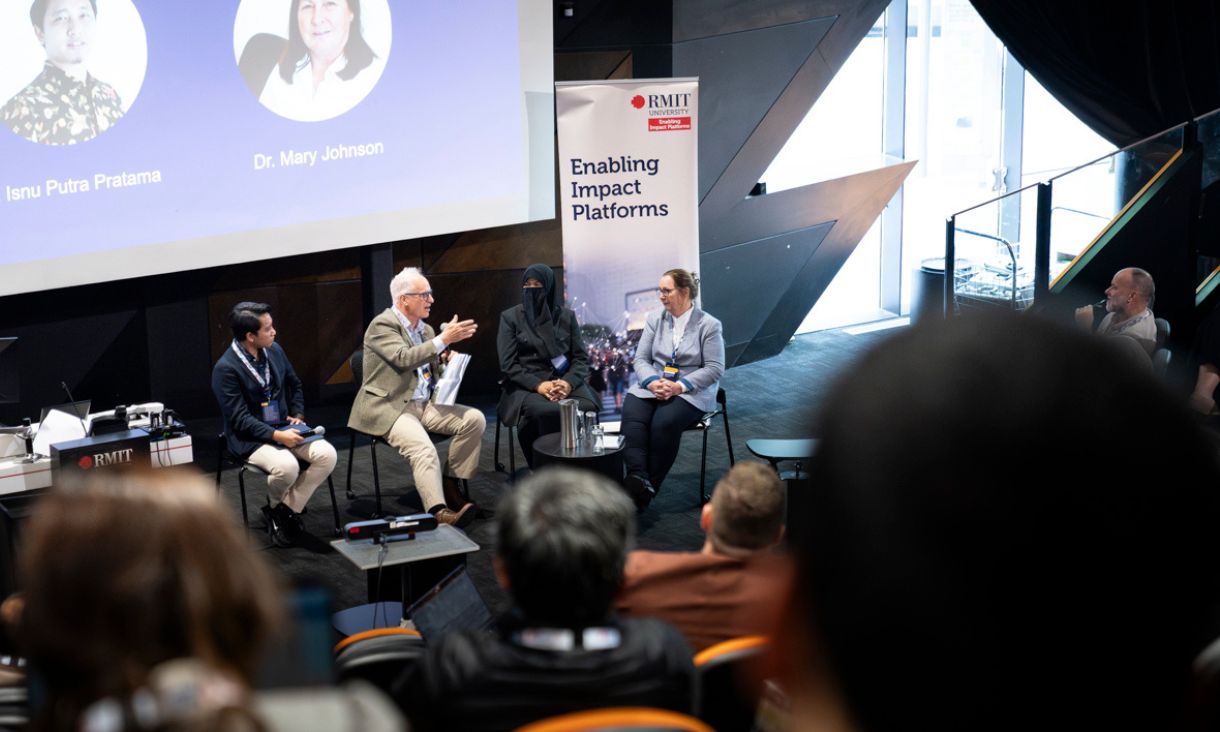Earlier this week, RMIT University welcomed global thought leaders and regional partners for the 11th International Conference on Climate Change (ICCC 2025).
The conference emphasised the growing partnership between Australia and Indonesia, with distinguished guests from Universitas Sebelas Maret, Institut Teknologi Bandung and leading specialists from across the ASEAN region.
Professor Tim Marshall, RMIT's Deputy Vice-Chancellor Design and Social Context, opened the event by highlighting the urgency of addressing climate challenges and the essential role of international collaboration. With COP 30 underway in Brazil, the conference agenda focussed on climate and land use issues, food and water security, and the critical urban-rural climate linkages that bind communities across borders.
A key theme this year was the importance of ASEAN-Australia cooperation in shaping resilient solutions. Indonesian leaders shared their expertise on climate adaptation, agricultural redesign and regenerative futures. Discussions were led by RMIT and Indonesian academics that fostered exchange on food security, water management, and sustainable agriculture, while robust panel sessions deepened understanding of region-specific opportunities and challenges.
RMIT's commitment to climate action is demonstrated through strategic investments in sustainability, campus decarbonisation and academic innovation. The university's ongoing collaboration with ASEAN partners exemplifies its approach to research, knowledge-sharing, and capacity-building.
Launching at RMIT in early 2026, Australia's first Regenerative Futures Institute will advance regenerative practices and sustainability innovation. Through interdisciplinary education, research and partnerships, the Institute will address global environmental and social challenges while equipping businesses and learners with tools to respond to climate change.
The conference also featured dynamic research showcases, with experts from RMIT, Universitas Sebelas Maret and others presenting creative practice and transformative projects.
The opportunity for RMIT's Asia Hub to host this year's conference underscores our ongoing commitment as a convenor and catalyst for regional collaboration. The focus on Indonesia and ASEAN not only strengthens academic and industry relationships but also sets the stage for innovative outcomes that will benefit communities across the Asia Pacific.
Professor Marshall summed up RMIT's ambition "through positive relationships and purposeful connections...we can ensure that our collective story is one of shared problem solving and facing climate change head on together."







